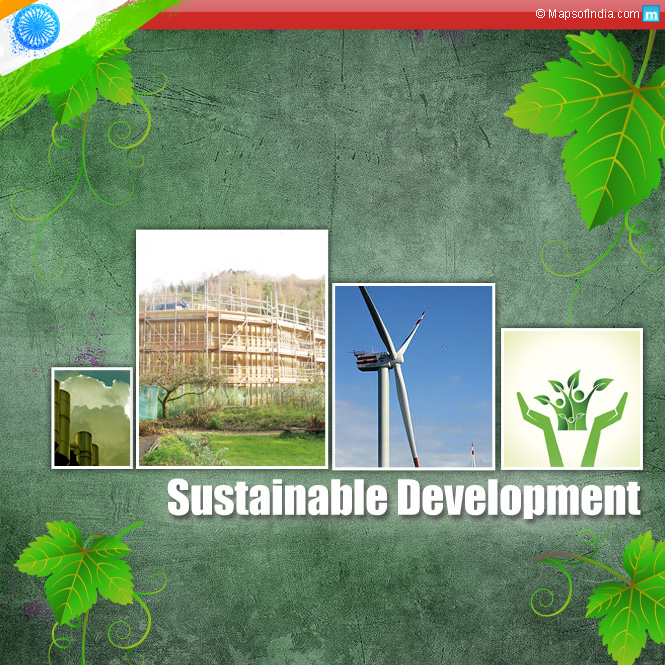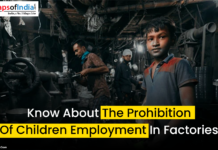Sustainable development makes headlines every day as the world deals with climate change, biodiversity loss, conflict and resource scarcity. In manifesting the term economic development, the price of environmental destruction is paid in the forms of land degradation, soil erosion, air and water pollution, deforestation, etc. This damage may out shadow the benefits of having more quality output of goods and services.
The idea of sustainable development came into knowledge with the 1987 publication of ‘Our Common Future, a report from the World Commission on Environment and Development (the Brundtland Commission). Here, development refers to meeting the needs of the present without compromising the ability of future generations to meet their own needs. It is a balance in people’s economic and social needs with the preservation and improvements of natural resources and ecosystems.
Sustainability is vital for today’s prominent worldwide framework for international cooperation – the 2030 Agenda for Sustainable Development and its Sustainable Development Goals (SDGs) adopted by the United Nations Member states in 2015. People from all walks of life, such as governments, businesses, civil society, have a significant role in ensuring sustainable development. SDGs foster the kind of development that avoids any environmental problems. Its primary purpose is to meet the needs of the existing generation without affecting the future environment.
Following are some of the Sustainable development goals which will help achieve a better and more sustainable future for all:
- No poverty: UNU World Institute for Development Economics Research study states that the economic fallout from the worldwide COVID pandemic could rise in global poverty by as much as half a billion people or 8% of the total human population. Since 1990, it would be the first time that poverty has increased globally in thirty years. COVID risks are reversing the progress and efforts being made by the countries. Now, over 700 million people, or 10% of the world population, still live in extreme poverty, struggling to fulfil the most necessities required for a human being to survive.
- Zero Hunger: Projections discover that approximately 690 million people are hungry, or 8.9% of the world population – up by 10 million people in one year and by nearly 60 million in five years. Countries are not on the path to attain Zero Hunger by 2030. If the current situation continues, the number of people affected by hunger will exceed 840 million by 2030.
- Good health and well-being: Before the pandemic, a significant improvement was made in enhancing the health of millions of people. Ensuring healthy lives and promoting well-being at all ages is essential to sustainable development. As countries face a global health crisis unlike any other – COVID-19 is propagating human suffering, destabilising the global economy.
- Quality Education: Education allows socioeconomic mobility upward and is a critical way to escape poverty. Over the past decade, significant progress was made towards uplifting children in education by providing access to schools, especially for girls. However, nearly 260 million children were still out of school in 2018 – making one-fifth of the global population in that age group.
- Gender Equality: It is not only a fundamental human right but a crucial foundation for a peaceful, prosperous and sustainable world. There has been progressing over the last decades: More girls are going to school, fewer girls are forced into early marriage, more women are serving in parliament and leadership positions. Despite this progress, many challenges remain, such as discriminatory laws and social norms that remain pervasive. Women continue to be underrepresented at all levels of political leadership in the country, and 1 in 5 women and girls between the ages of 15 and 49 report sustaining physical or sexual violence by an intimate partner within 12 months.
- Clean water and sanitation: Globally, one in three people do not have access to safe drinking water, two out of five people do not have an essential hand-washing provision with soap and water, and over 673 million people still practise open defecation. COVID has made it necessary to sanitise things, particularly hand-washing, with sufficient access to water.
- Affordable and clean energy: Access to electricity in poorer countries has started in a speedy manner, energy efficiency continues to enhance, and renewable energy is making impressive gains in the electricity sector, according to the United Nations.
- Decent work and economic growth: Sustained and inclusive economic growth can lead to progress, and create decent jobs for all and maintain more living standards. But the economic and financial shocks connected with COVID-19 have affected billions of lives and endangered the global economy. The International Monetary Fund (IMF) anticipates a global recession as bad or worse than in 2009.
- Industries, Innovation and Infrastructure: Inclusive and sustainable industrialisation with innovation and infrastructure can result in dynamic and competitive economic forces that make employment and income. They play a significant role in placing and promoting new technologies, enabling the global trade more accessible and efficient use of resources.
- Reduced inequalities: Inequality within and among countries is a constant cause for concern. Despite some positive approaches towards decreasing inequality in some areas, such as lowering relative income inequality in some countries and preferential trade status benefiting lower-income countries, inequality continues, and the poor endure it.




